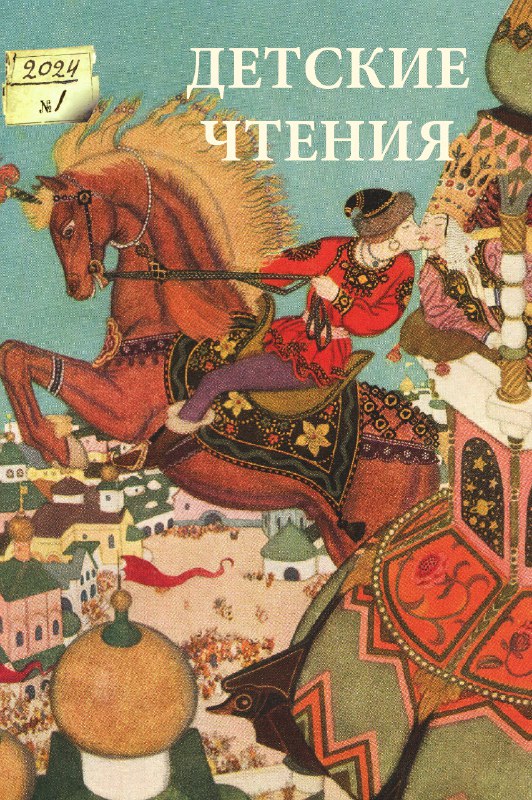CHILDREN “BIG” AND “SMALL”: VASILY SLEPTSOV’S FEUILLETON “FOR CHILDREN” IN THE CONTEXT OF THE POLEMIC ABOUT CHILDREN’S LITERATURE AND EDUCATION IN THE 1860S
DOI:
https://doi.org/10.31860/2304-5817-2024-1-25-178-200Abstract
The article analyzes Vasily Sleptsov’s feuilleton A Spring Walk with Children Along the Streets of Saint Petersburg (1863), part of the Petersburg Notes cycle. Addressed to progressive youth of the 1860s, the feuilleton is seen here as evidence of ongoing public debate about the role of childhood in shaping man and citizen, as it seeks to find the most appropriate way to write for and about children in a changing socio-political environment. The study examines the uniqueness of Sleptsov’s literary form. On the one hand, it could be described as a feuilleton; on the other hand, it reveals signs of various genres of children’s educational literature. This use of a genealogically complex form may indicate similarities in rhetorical strategies employed by writers and educators in discussions about younger generations, whether they be children or young adults. It is also suggested that in the 1860s, children’s literature and childhood discourse were influenced not only by literature for adult readers but also by the tradition of critical reflection. Sleptsov’s feuilleton can be considered an example of reverse genre transfer, as it explicitly demonstrates how narrative forms adapted by children’s literature influence adult literature.
Keywords: Vasily Sleptsov, feuilleton, educational literature for children, literary criticism, pedagogical criticism, educational policy







